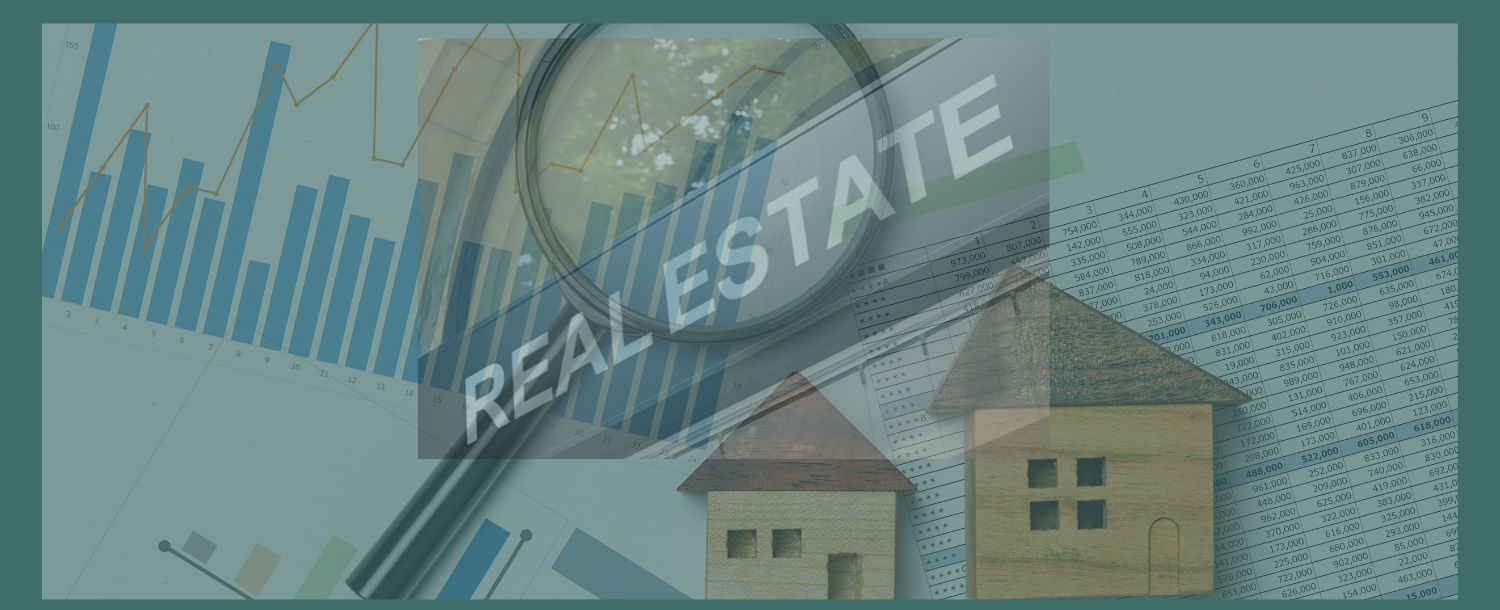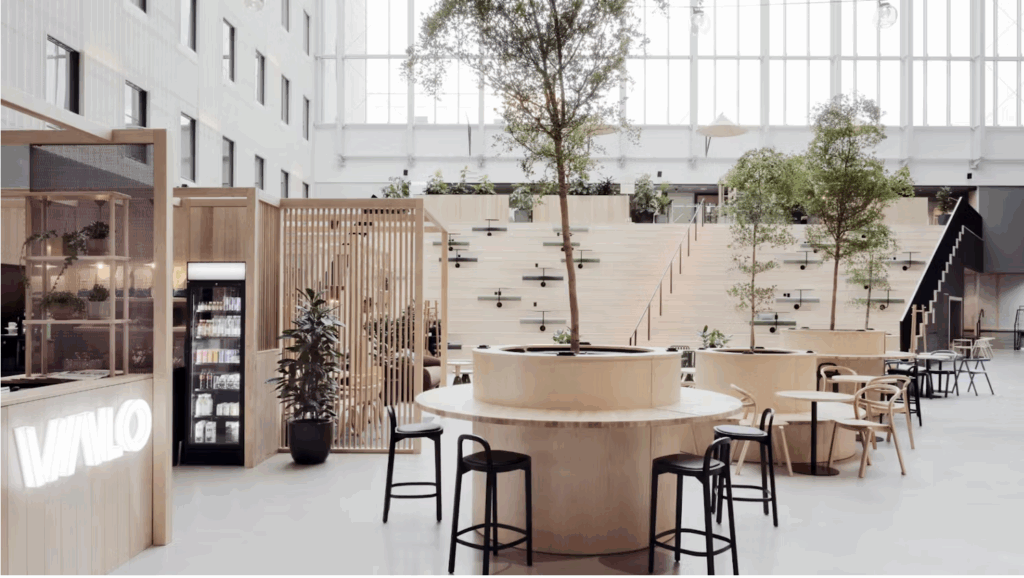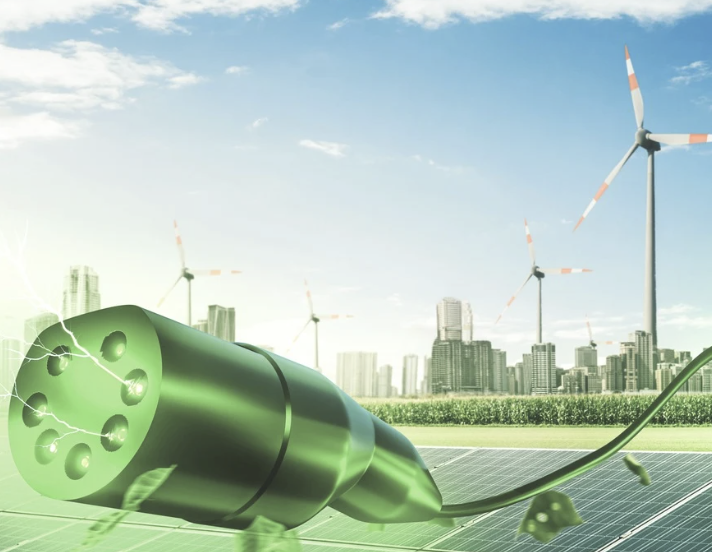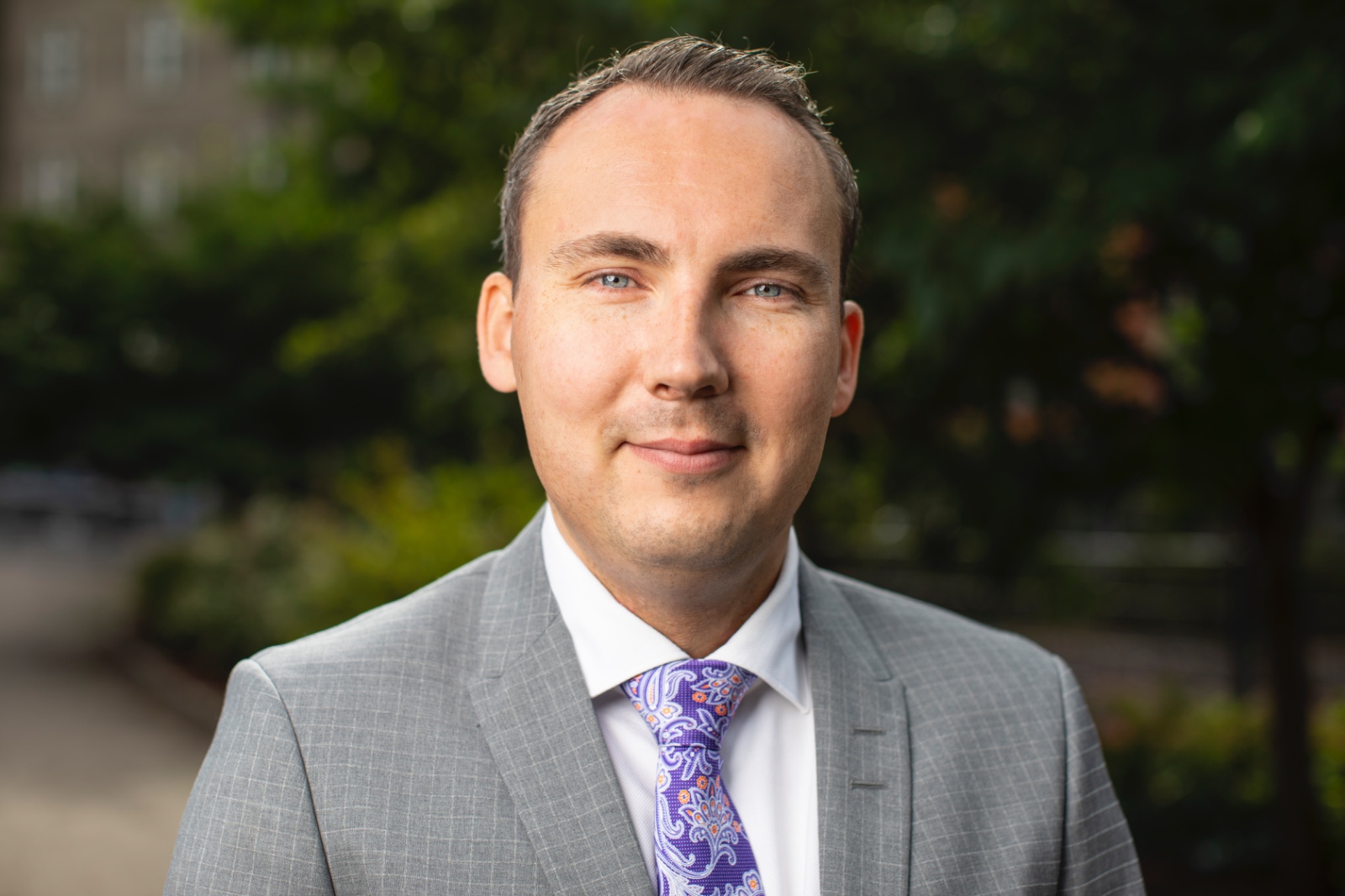Sustainable real estate investments: real estate as a key to a livable future

How can sustainable real estate projects generate an attractive financial return while addressing today’s challenges in real estate?
Table of contents
Social inequality, climate change, and the energy transition– we are facing complex challenges that demand long-term, resource-conscious solutions. Real estate, as one of the largest single asset classes, and largest source of CO2 emissions plays a central role in this context. Real estate is where the largest impact on energy consumption, social inclusiveness, and sustainable economic practices can be found. Real estate shapes how we live, work, and stands for a majority of the energy we consume and CO2 emissions we have.
For this reason, we at Invesdor have taken the strategic decision to increasingly offer investment opportunities in real estate. These real estate investment opportunities align with our mission to offer both financial and sustainable returns. The vast majority of these investments are closely aligned with at least one of the United Nations’ Sustainable Development Goals (SDGs).
What does sustainable real estate mean? Why does renewable energy sources play such a key role? In this article we will explores these topics and how you as an investor can earn both a financial and sustainable return through Invesdor.
Real estate, renewable energy, and sustainability: Why is Invesdor expanding its range of investment opportunities into real estate ?
Invesdor follows a clear strategy: sustainability and financial returns are at the core of the investment opportunities we offer. Through the investment opportunities in corporate debt, equity investments and renewable energy we have been able to offer attractive financial returns together with environmental sustainability. This has allowed our investors to diversify among three asset classes, ultimately reducing risk while maintaining attractive expected returns. We have however identified that social sustainability is an underserved topic in the financial markets.
By offering our investors with real estate investment opportunities we believe that we can not only allow our investors to have an even larger environmentally sustainable impact but also tap into social sustainability and diversify further through adding a fourth asset class. This is why we have taken the strategic decision to increasingly offer investment opportunities within real estate.
Our decision to increasingly offer investment opportunities within real estate is a direct reflection of our commitment to the United Nations Sustainable Development Goals (SDGs, https://sdgs.un.org/goals). We emphasize environmental aspects as well as social and economic criteria. Every investment opportunity is assessed in advance using a proprietary checklist. Our minimum requirement is ESG – Environmental, Social and Governance – compliance while we strive for having at least 80% of the investment opportunities SDG. Key SDGs we focus on include the following:
- Good Health and Well-Being (SDG 3): Sustainable real estate promotes healthier living and working environments through improved air quality, the use of natural building materials, and modern ventilation systems—contributing to greater well-being for occupants.
- Affordable and Clean Energy (SDG 7): Buildings that rely on renewable energy sources such as solar power, geothermal energy, and battery storage help reduce CO₂ emissions—and ongoing operating costs. Invesdor investment projects are examined to determine the extent to which they cover their energy requirement from renewable sources.
- Reduced Inequalities (SDG 10): Inclusive and socially responsible real estate offers fair access to affordable housing, especially for students, seniors, and low-income households. In the investment opportunities offered at Invesdor this can mean for example socially supported real estate.
- Sustainable Cities and Communities (SDG 11): Sustainable real estate can for example contribute to the resilience and livability of urban areas through the renovation and repurposing of existing buildings and smart neighborhood solutions. Ultimately having an impact not only on the livability of the community but also on the environment. When evaluating investment opportunities within real estate we consider multiple factors including local context , support mixed-use development, and help shape future-proof urban structures.
- Responsible Consumption and Production (SDG 12): Sustainable real estate construction relies on resource-efficient construction methods. Such real estate prioritizes the refurbishment of existing buildings and the use of eco-friendly materials. Our assessment criteria for sustainable real estate construction and refurbishment include, for example, material circularity and long-term maintainability.
Through our strict evaluation criterion including the above-mentioned SDG’s we at Invesdor want to enable our investors to invest in real estate offering attractive financial- and sustainable returns and the opportunity to diversify into a new asset class.
INFO: What are sustainable buildings?
Sustainable real estate refers to buildings or neighborhoods that are planned from the outset- or transformed according to environmental, economic, and social criteria. Such buildings can be characterized by resource-efficient construction methods (such as recycled materials and low CO₂ emissions), high energy efficiency (including renewable energy and smart building technology), and socially inclusive usage concepts (such as affordable housing and flexible space layouts).
Sustainable real estate investments: challenges and opportunities
The real estate market is undergoing noticeable change: rising energy costs, stricter climate regulations, and the growing demand for sustainable investments are driving the need for new, creative solutions. This affects not only new construction—where sustainable options can be considered in terms of land use, materials, and energy—but also existing buildings, which are renovated and brought up to modern energy standards.
- Renovation Needs and Energy Efficiency:
Many existing buildings no longer meet current energy efficiency standards. Energy renovations can reduce energy consumption by up to 50%, though they require higher upfront investment. Invesdor offers an attractive solution here: private investors can invest comparatively small amounts in the construction- or renovation of sustainable buildings allowing the investors to gain a financial return while also having a positive environmental impact.
- Stricter Climate Regulations and Compliance:
The EU Taxonomy and local national regulation, such as Germany’s Building Energy Act (GEG), require that properties meet specific environmental criteria. This regulation is ultimately expected to lead to an increasing investment need in the real estate sector, allowing investors to earn a financial return while being part of the transition and also earning a environmental return.
- Growing Demand for Green Properties:
Studies show that tenants and buyers increasingly value sustainability features—such as lower CO₂ emissions, access to public transportation, and high energy efficiency. The European Property Market Report highlights that occupancy rates for green buildings in major cities are up to ten percentage points higher than for conventional properties.
(Sources: https://www.cbre.com/insights/books/european-real-estate-market-outlook-2024/sustainability, https://www.realestate.bnpparibas.de/sites/default/files/document/2024-03/green-building-investmentmarket-germany-2024.pdf)
- Financial Opportunities and Risks:
While sustainable buildings tend to have higher construction costs, they tend to offer long-term savings through lower energy and maintenance expenses. This can reduce the risk of rental vacancies and increases asset stability. At the same time, transaction volume and investor interest in the “Alternative Investments – Sustainable Real Estate” segment rose by 15% in 2024. This reflects a growing desire among investors to diversify beyond traditional equity and bond markets.
(Sources: https://www.unepfi.org/wordpress/wp-content/uploads/2024/04/PRB_Banking-on-Green-Buildings_final.pdf, https://www.realestate.bnpparibas.de/sites/default/files/document/2024-03/green-building-investmentmarket-germany-2024.pdf)
- Invesdor as your partner in real estate investing:
Through Invesdor private investors can invest in curated investment opportunities with relatively small amounts. Our investment tickets start as low as 250 Euro. This lowers the barrier of entry and allows for efficient diversification with a relatively small portfolio.
By expanding into real estate financing, we at Invesdor believe we can offer our investors the opportunity to earn dual returns. On the one hand, investors have the opportunity to earn a financial return. On the other, investors have the opportunity to earn a sustainable return stemming from both social and environmental sustainabilit
A Forward-Looking Example from Helsinki, Finland: The VALO Hotel & Work

The VALO Hotel & Work in Helsinki, Finland is considered a forward-looking example of sustainable real estate development in the city. The facility demonstrates how urban spaces can be used more efficiently and sustainably through intelligent usage concepts.
In traditional hotels many spaces remain unused during the day. In traditional offices many spaces remain unused during the night. VALO takes an entirely new approach: The same space can be used as a hotel and an office flexibly depending on the time of day. In the day the rooms can be used as fully equipped offices. In the evening the same rooms become comfortable hotel rooms. The transformation happens in minutes while the guest is having breakfast or dinner. This principle of double use applies throughout the entire building, significantly optimizing its usage, and ultimately lowering not only scope one and two emissions but also scope three emissions.
Flexible Use and Digital Management for Greater Efficiency
The rooms are designed so that the switch from working space to a hotel room can be done within minutes. Ergonomic desks, digital infrastructure, and ample storage ensure a productive work environment during the day. In the evening, the room becomes a cozy retreat. Booking is handled digitally, allowing visitors to decide spontaneously whether they want to use the space for work, for an overnight stay or both.
Sustainable Real Estate Investment with High Impact
Invesdor alumni VALO demonstrates how sustainable real estate can be both environmentally and economically profitable. Dual usage cuts operational costs and allows for energy and resource consumption optimization as less space is needed per person.
This presents an attractive opportunity for investors: VALO proves that real estate projects can combine financial success with social and environmental responsibility. It serves as an example of sustainable real estate investments that are viable in the long term and address today’s challenges in the housing and labor markets.
Future-Proof Cities Through Innovative Real Estate Concept
VALO’s concept of dual use allows for shaping the future of urban development through real estate. VALO Hotel & Work connects hotel and working environments, reduces environmental impact, and creates flexible solutions for modern lifestyles. Concepts like VALO Hotel & Work are leading the change in making urban spaces more livable, adaptable, and sustainable – and show the potential of responsible investment in the field of real estate.
Future-Oriented Logistics in Wiesau: The DFI Future Park Northern Bavaria
An example of future-ready commercial real estate is taking shape in the Bavarian municipality of Wiesau: the DFI Zukunftspark Nordbayern. This project combines the use of modern logistics with a sustainable energy concept. The DFI Zukunftspark Nordbayern demonstrates how commercial real estate can contribute to the energy transition and economic development.
Sustainable Construction: Fossil-Free Operation and Recycling Concept
During the demolition of the existing structures the developers focus on reuse of construction material. A large portion of the building materials is recycled and repurposed. Allowing for both environmental and monetary efficiency. The new construction is designed for fossil-free operation, combining photovoltaic systems, heat pumps, and high technical building efficiency. The developers aim to achieve certification DGNB Gold Standard certification for all future DFI parks. DGNB Gold Standard is one of the highest sustainability benchmarks in the real estate industry in europe.(https://www.dgnb.de/en/certification/path-to-dgnb-certification/dgnb-recognised-product-labels). .
Flexible use in the logistics center: adaptable spaces
This logistics park in Northern Bavaria offers approximately 32,000 square meters of rental space, including production halls, storage units, and flexibly designed mezzanine levels. The logistics park is strategically locatied near the A93 highway, proxime to a freight transport hub, and within short distance of the Czech border. These aspects provide ideal conditions for efficient logistics operations.
Investment security: targeted sales and leasing strategy
A reputable institutional investor has already signed the purchase agreement for the logistics park. The leasing process has been outsourced to an experienced broker network. With construction still ongoing the project team is tailoring the spaces to meet the specific needs of future tenants. Completion is scheduled for 2026.
Sustainable investment in the real estate sector: forward-looking logistics
The DFI Zukunftspark in upper Bavaria demonstrates how sustainable logistics properties combine financial- and environmental returns. As such this investment opportunity offers an attractive expected return for investors.
Energy efficiency through digital retrofitting: metr in Berlin
Berlin-based PropTech company metr provides a forward-looking example of sustainability in existing buildings. The company has developed an IoT platform that makes existing heating systems smarter and more efficient. In doing so, metr demonstrates how digital retrofitting can be a cost-effective alternative to comprehensive renovations – with a noticeable effect on energy consumption and emissions.
Smart technology instead of expensive renovations
Many heating systems in residential buildings still run on factory settings and are not optimally adapted to the needs of the residents. This is where metr comes in with its technology: the systems are equipped with sensors and a digital control system that automatically optimises operation. This means that energy is only used when it is really needed.
Savings without compromising on comfort
In several thousand buildings, metr has already proven that energy consumption can be reduced by up to 35 % . For residents, this means consistent comfort while reducing heating costs. For the real estate industry, this results in significant operating cost advantages – and a direct contribution to the decarbonisation of the building sector.
Sustainable investment in digital solutions
metr offers real estate companies a scalable way to make their portfolios more climate-friendly without having to invest in costly construction projects right away. For investors, the company provides an example of how technological innovation in the real estate sector can combine economic success with environmental impact.
Sustainable real estate investments – a return for both the environment and investors
Sustainable real estate investment opportunities can refer to both environmental and social returns while offering an attractive financial return to the investors. Ultimately allowing investors to actively contribute to sustainable development while earning financial returns. Real estate also provides investors the opportunity to diversify their portfolio into a new asset class with expected low correlation with other asset classes.
Invesdor offers investment opportunities in real estate including:
- newly developed and integrate state-of-the-art, resource-efficient technologies from the outset,
- renovation of real estate to upgrade existing structures in an efficient and sustainable way,
- expansion of real estate to make better use of existing infrastructure in a more sustainable and efficient manner.
Such investment opportunities meet a clear return criteria both from a financial and sustainable point of view.
Real estate is regarded an attractive asset class as it is regarded comparatively stable with low correlation to other asset classes, such as stocks and bonds, allowing for diversification.
Like with all (financial) assets also real estate is associated with risk. The risk is strongly dependent on the investment vehicle used for investing in real estate. In real estate backed debt the main risk to consider is the inability to serve the debt and the collateral pledged against this debt. The risk is that the (real estate) operator is unable to service (repay) the debt. They have a known return and risk.
Info: How Invesdor evaluates investment opportunities
We evaluate each investment opportunity through a clearly defined process to ensure an attractive risk-return relationship. Each investment opportunity evaluated in several stages:
- Initial Screening and Scoring:
A preliminary selection based on financial metrics, creditworthiness, and business model.
- In-Depth Analysis:
A detailed assessment of the legal framework and technical factors.
- ESG Evaluation:
A review to ensure both financial return potential and sustainable return potential is met (e.g., CO₂ footprint, social impact).
- Investment Committee:
The final decision is made by a panel of experts that consolidates all assessment results.
Only about 5% of screened investment opportunities make it onto the Invesdor platform.
You can find more details about the evaluation process for investment opportunities here.: Investment Evaluation Process.
Invest Sustainably Now: Your Chance to Shape the Future!
Investment opportunities in sustainable real estate can offer attractive financial returns while enabling investors to play an active role in addressing global challenges. Join the sustainable investment community on Invesdor today and discover attractive investment opportunities that combine financial- and sustainable return.
Start today and invest in a future worth living!
Here you can find our current investment opportunities.
FAQ: Frequently Asked Questions from Potential Investors in Sustainable Real Estate
How does investing in real estate through Invesdor work?
Through Invesdor you have the opportunity to invest in real estate debt starting from only €250 per investment ticket allowing for efficient diversification among multiple investment opportunities. Invesdor’s platform is fully digital making investing smooth and transparent.
Invesdor acts as the intermediate handling all required regulatory, legal, and financial administration.
How does Invesdor assess the sustainability criteria?
All investment opportunities undergo rigorous financial and sustainable assessments. The sustainable assessment is based on recognized ESG criteria and our own additional sustainability guidelines. Independent audits and reports also ensure maximum transparency.
How do sustainable real estate projects differ from conventional real estate investments?
Sustainable projects often offer better long-term prospects. They are characterized by lower energy costs, regulatory advantages, and a clear ecological and social impact. Their risk-return profile is comparable to that of other projects.
Are there any tax-related specifics to consider when investing?
Tax regulations may vary. Please consult your tax advisor for individual guidance on potential tax benefits or obligations.







